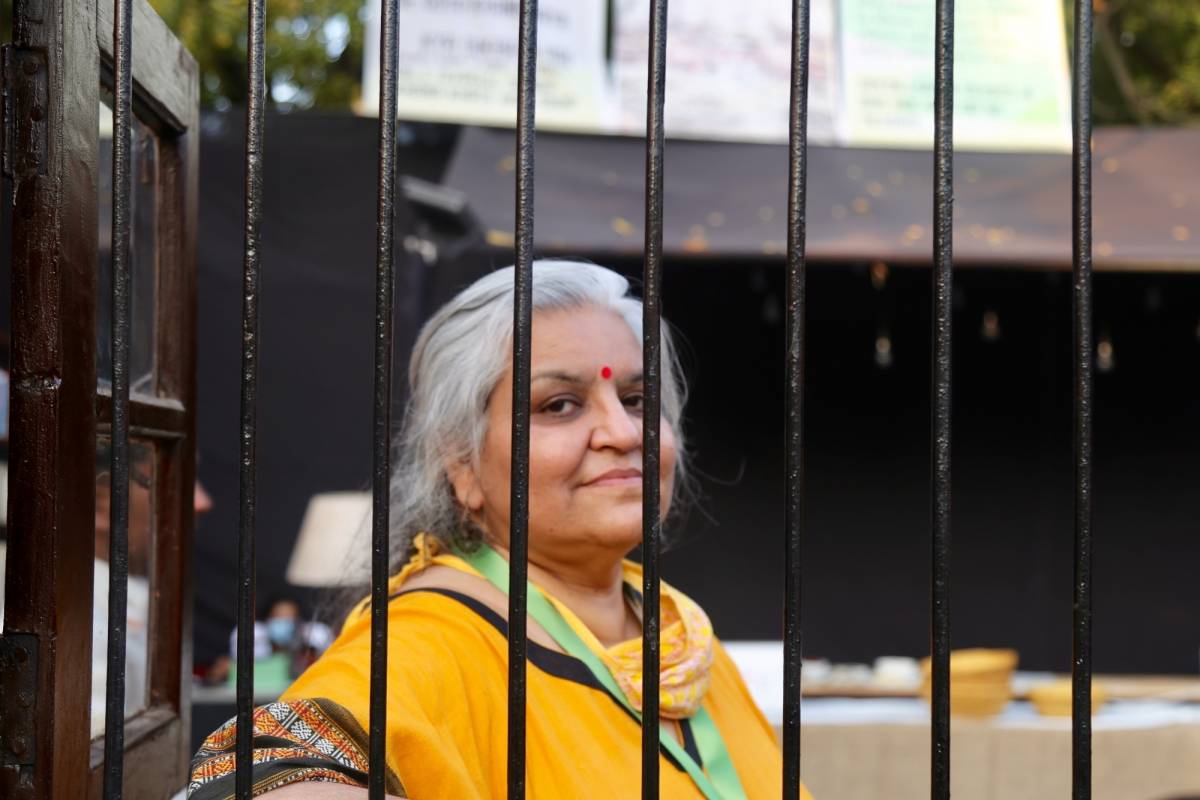Although known for its culture, there were not many platforms in which diverse ethos of the city could be witnessed at one place in the 90s. Barring a few government festivals, the place did not offer much in terms of public performances…Sukant Deepak
A few years back, Pt. Birju Maharaj was invited at the festival. He was performing after 25 years in Lucknow. An evening everybody was waiting for.
And it rained. A complete washout.
“We requested the craftsmen to move the tables in the exhibition area, and that is where the performance finally happened. Rain and thunder, and Pt. Birju Maharaj dancing just a few feet away from the audiences… imagine,” remembers Madhavi Kuckreja, founder of the recently concluded Mahindra Sanatkada Festival in the city.
Started 13 years back, the festival offers a unique them as a prism to look at the cultural landscape of the city. This time, it was food, ‘Lucknavi Bawarchi Khane’, a tribute to culinary traditions of the city, a theme that witnessed stalls from some of the best-known eateries in the city besides a crafts bazaar, film screenings, lectures, theatre performance, ‘Qissa Goi’ and ‘Bait Baazi’.
“We started with a crafts bazaar in 2006, the festival in its present form took shape in 2010,” recalls Kuckreja.
For someone who had worked for years in the NGO sector in Chitrakoot, Lucknow was the natural choice to set up base, although her parents were settled in Delhi. “I would come here often for work. It is still one of the few small-big cities which still has a connect with the hinterland intact.”
Although known for its culture, there were not many platforms which diverse ethos of the city could be witnessed at one place in the 90s. Barring a few government festivals, the place did not offer much in terms of public performances.
“I had no other option but to go to people’s places to explore the different shades of this city — food, crafts and heritage. Remember, that was not the era of social media.”
In the five-day festival which now has a footfall of around 30,000 people, it was important for the founder that it emerged rooted. “A festival of culture makes little sense if people don’t own it, if it does not touch them different levels. In fact, through Sanatkada, we have revived the age-old traditions of ‘bait-bazi’ and ‘Qissa Goi’.”
With diverse themes like ‘Pehnawa’, ‘Feminists’, ‘Bazaars’, ‘Filmi Duniya Mein Awadh’ among others in previous years, the founder says that work begins at least six months before the festival. “We thoroughly research the theme and do extensive documentation. And that is just the start.”
Next on her agenda is an offline and online cultural history museum in Lucknow. “This is something that has been on my mind for quite some time now. A dynamic and interactive museum which is not monolithic, something that offers a glimpse of culture of this region in an effective way,” she concludes.
ALSO READ-Jacqueline urges people to work for better female education

Leave a Reply